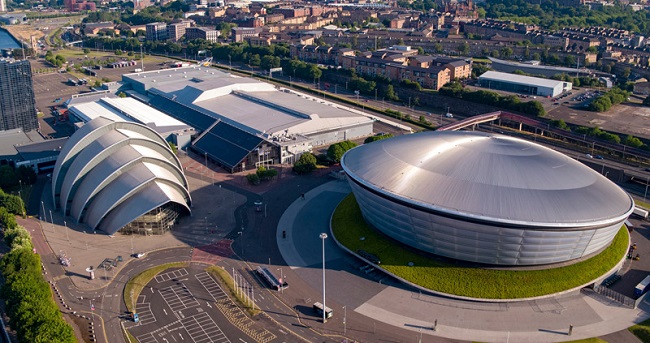Prior to the 26th Session of the Conference of Parties (COP26) to the United Nations Framework Convention on Climate Change (UNFCCC) in November 2021, in Glasgow, Scotland, two important reports were released: The Intergovernmental Panel on Climate Change’s (IPCC) Climate Change 2021 Report and NDC Synthesis Report.

The two reports reveal concerns regarding efforts to cut down greenhouse gases emissions. According to IPCC, despite over two decades of efforts by countries to cut down emission of greenhouse gases, their “…concentrations have continued to increase in the atmosphere, reaching annual averages of 410 parts per million (ppm) for carbon dioxide (CO2), 1866 parts per billion (ppb) for methane (CH4), and 332 ppb for nitrous oxide (N2O) in 2019.”
The report also reveals that the concentration of CO2 in the atmosphere is the highest it has been in 2 million years; sea level rise is at its fastest in 3000 years; and artic sea ice is at its lowest levels in at least 1000 years. The concentration of these gases, which are believed to be driven by human activities, has caused warming that is unprecedented in at least the last 2000 years, resulting to increased flooding, drought, and other extreme climatic events.
The latest report by the IPCC seems to suggest, that efforts claimed to have been made by different countries over two decades were grossly insufficient to halt global warming, not to talk about reversing it. This does not show the impact of billions of Dollars of investments from the different climate funding mechanisms of the UNFCCC, the multilateral climate funds, and other climate funds. Should we say that these investments were not judiciously utilized, or the atmosphere stubbornly resists any effort that will cause reduction in the concentration of greenhouse gases. Maybe, pledges to climate funds not redeemed by developed countries has caused little actions to be taken to change the climate state.
What may have worried the UN Secretary General more about the IPCC Report, to have declared that it is “a Code Red for humanity” is the warning that if nothing is done urgently, the world will move from “frying pan to fire,” with global average temperature far above 1.5 Degrees Celsius, a limit set by the Paris Agreement.
To add salt to injury, the NDC Synthesis Report released after the IPCC Report, confirms that emission reduction efforts by countries as analyzed from the Nationally Determined Contributions (NDCs) they submitted to UNFCCC is not capable of meeting the target of the Paris Agreement.
According to the UN Secretary General, “The alarm bells are deafening, and the evidence is irrefutable: greenhouse gas emissions from fossil fuel burning and deforestation are choking our planet and putting billions of people at immediate risk.”
The IPCC report, the UN Secretary General said, “…must sound a death knell for coal and fossil fuels, before they destroy our planet… Countries should also end all new fossil fuel exploration and production, and shift fossil fuel subsidies into renewable energy. By 2030, solar and wind capacity should quadruple and renewable energy investments should triple to maintain a net zero trajectory by mid-century.” This statement from the UN Secretary General set the tone for COP26.
At the opening ceremony of the climate change conference in Glasgow, many countries renewed their commitments to achieve net zero emissions at different timeframes, including Nigeria that pledged to achieve net zero emissions by 2060. The pledge by President Buhari brings hope to climate activists in Nigeria, as it is a sign that the President will speedily assent to the Climate Change Bill that has been passed by the National Assembly and is before him, waiting for assent.
To achieve the net zero emission pledges, countries such as Poland, Vietnam, Egypt, Chile, and Morocco, among others have announced commitments to phase out coal power and invest more in clean energy.
The big question is, with commitments to act more on the climate crisis been received from different countries, is it likely that the rising global temperatures will be lowered soon? The likelihood of global temperatures lowering, is whether these commitments are kept to. It is however difficult to tell if these promises will be kept as more beautiful promises in the past by different countries were broken, resulting to the climate state we are in – A Code Red!
This has made many climate activists like Greta Thunberg to lose trust in the world leaders as she described COP26 as a failure and a “PR event.” According to Greta, “The leaders are not doing nothing, they are actively creating loopholes and shaping frameworks to benefit themselves and to continue profiting from this destructive system.”
As week one of the conference winds down, and negotiations set to enter week two, discussions continue on finalizing the Paris Rule Book that outlines the strategies of turning ambitions into actions.
Whether the state of our climate will remain at Code Red or change to Code Green, is dependent on how much the ambitions and commitments at COP26 translate into actions.
By John Baaki, Deputy Executive Director, Women Environmental Programme (WEP)
